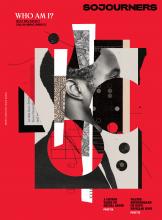CERTAIN WORDS cause problems. When I ask first-year seminarians to take seriously the importance of using inclusive language for God and humanity, who would have thought my urging would generate such panic and skepticism? To my suggestion that “Father God” is grammatically (and theologically) on par with “Heavenly Parent” or “Mother God,” I can see in their blank stares and grimaces that they feel, yet again, that the God known to them is being tampered with.
Perhaps the term “inclusion” is difficult for some because it means that all things done in word and deed that do no intentional harm to others are at worst permissible, because God’s love is boundless. Equally fraught is the term “expansion.” Notions of colonialism, manifest destiny, and Christian triumphalism come to mind.
How did the words “inclusive” and “expansion” become problematic, polarizing terms? One might place blame squarely on the shoulders of postmodernity, with its demand that Christians shed their husks of credulity and theological defensiveness. Others argue that for Christians to be taken seriously today, they must join the postmodern conversation with a revelation that can hold up in a world of scientific advancement and Twitter.
Read the Full Article

